Indigenous Governance Database
Honoring Nations Reports
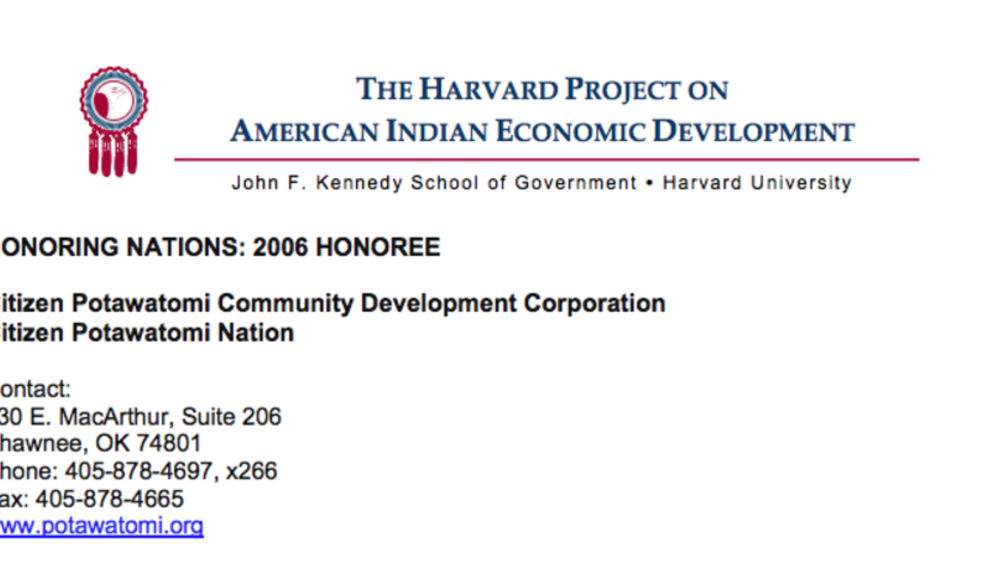
Citizen Potawatomi Community Development Corporation
Viewed as a one-stop shop for lending services, the Citizen Potawatomi Community Development Corporation provides holistic community development through business and employee loans, business development trainings, and financial literacy education. Demonstrating that the connection between…
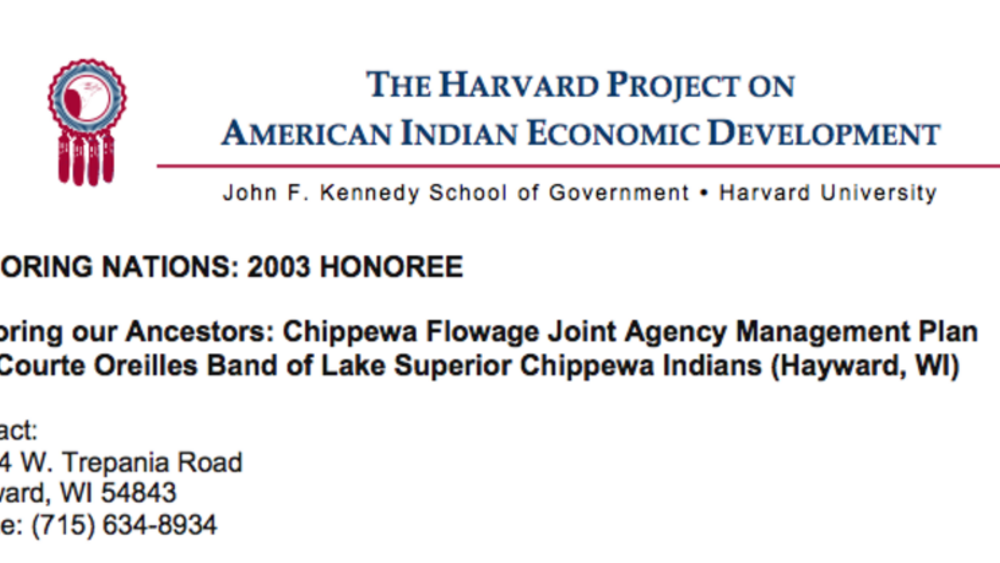
The Chippewa Flowage Joint Agency Management Plan
The Joint Agency Management Plan brings together three governments — the Lac Courte Oreilles Band, the State of Wisconsin, and the US Department of Agriculture Forest Service — to co-manage the Chippewa Flowage, a 15,300-acre reservoir created in 1923 that inundated a tribal village. Taking into…
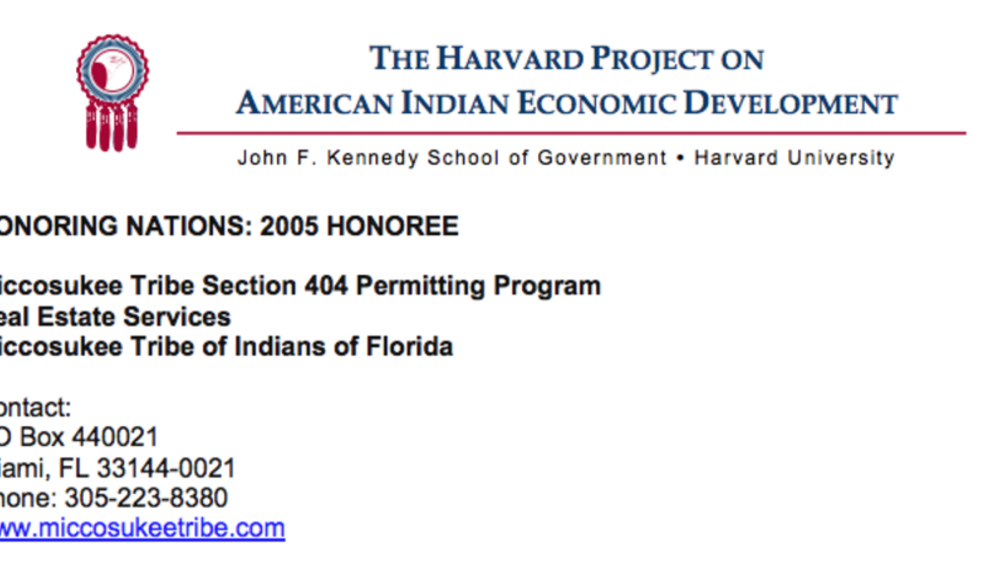
Miccosukee Tribe Section 404 Permitting Program
The reservation lands of the Miccosukee Tribe lie largely within the Everglades National Park. Development on these lands is subject to elaborate regulations by a host of federal agencies that hindered development and other uses of their lands by the Miccosukee people, including the building of…
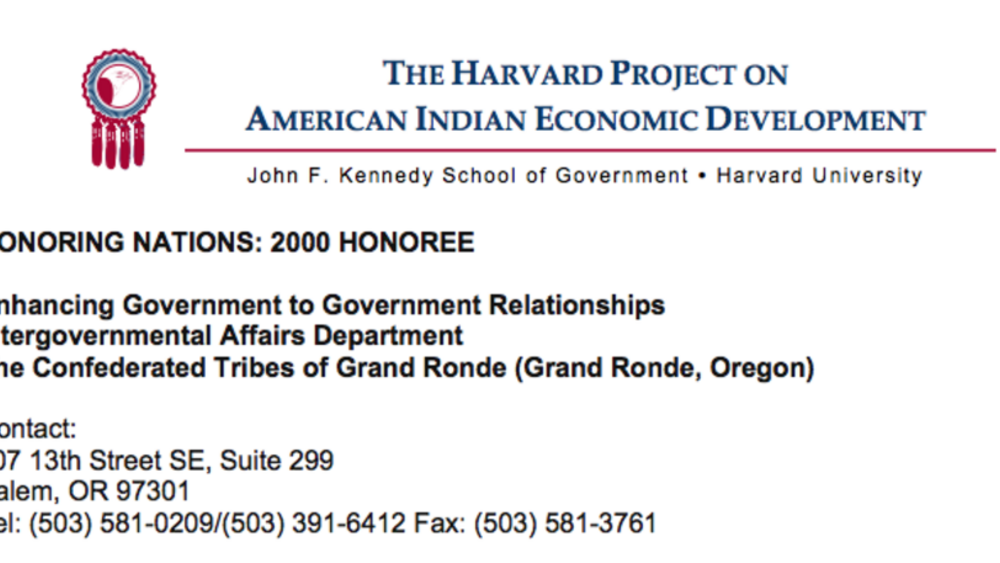
Enhancing Government-to-Government Relationships (Grand Ronde)
The Intergovernmental Affairs Department has achieved positive intergovernmental relationships with federal, state, and local governments by pursuing a five-pronged strategy of communication, education, cooperation, contributions, and presence. Since the Department’s creation, the Tribe has raised…
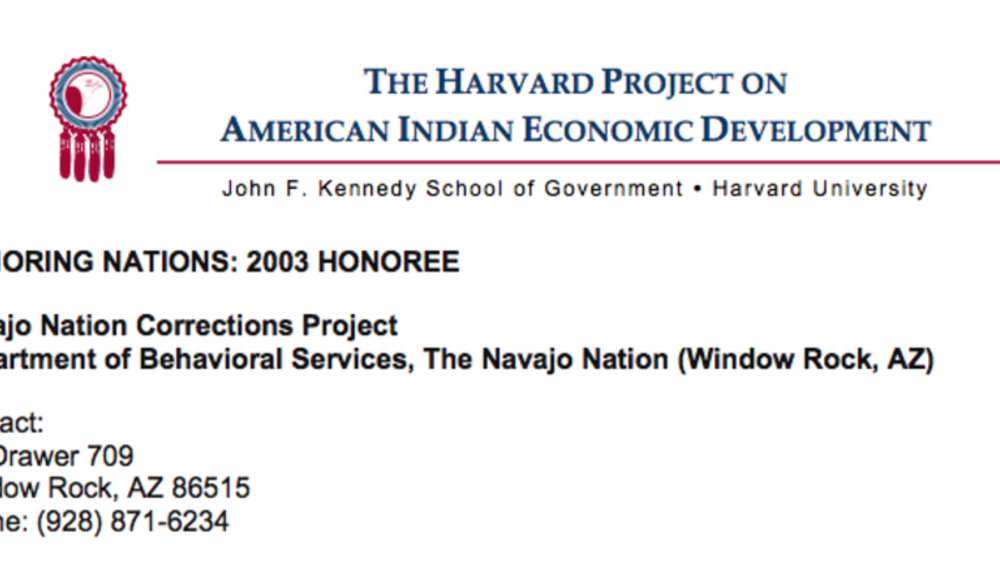
Navajo Nation Corrections Project
Established in 1983, the Corrections Project facilitates, coordinates, and advocates for the use of spiritual ceremonies, cultural activities, and counseling for Navajo and other Indians in correctional facilities. As the liaison between inmates, their families, and Indian and non-Indian government…
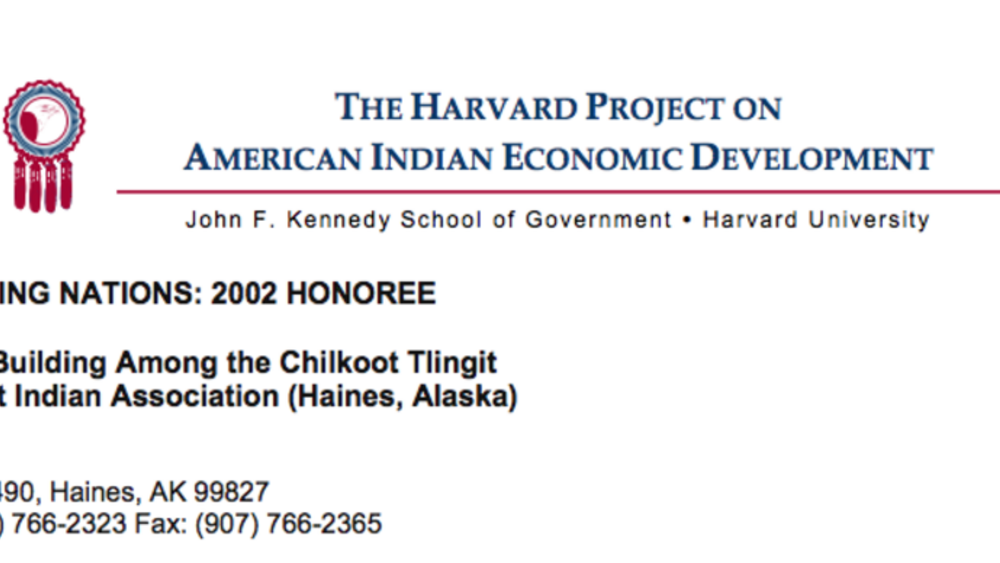
Chilkoot Tlingit "Nation Building"
Excluded by the Alaska Native Claims Settlement Act, the Chilkoot Tlingit are engaged in a process of nation-building. The process began in 1990 with the revival of their dormant tribal government, the Chilkoot Indian Association (CIA). From this institutional foundation, the 480-member CIA…
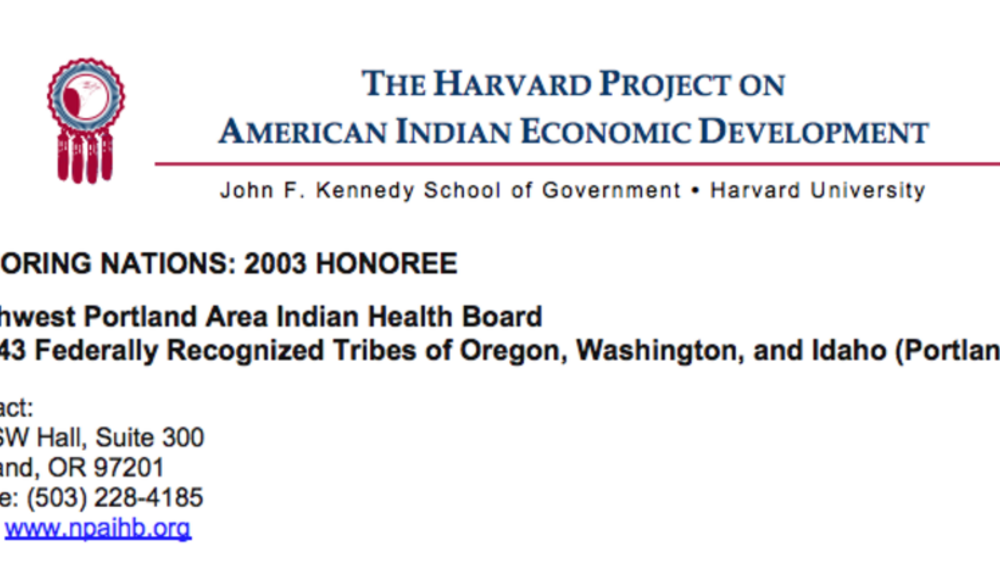
Northwest Portland Area Indian Health Board
Serving tribes in Oregon, Washington, and Idaho, the Northwest Portland Area Indian Health Board (NPAIHB) was created in 1972 to increase tribes’ ability to exercise control over the design and development of tribal health care delivery systems. Governed by tribal government delegates, NPAIHB…
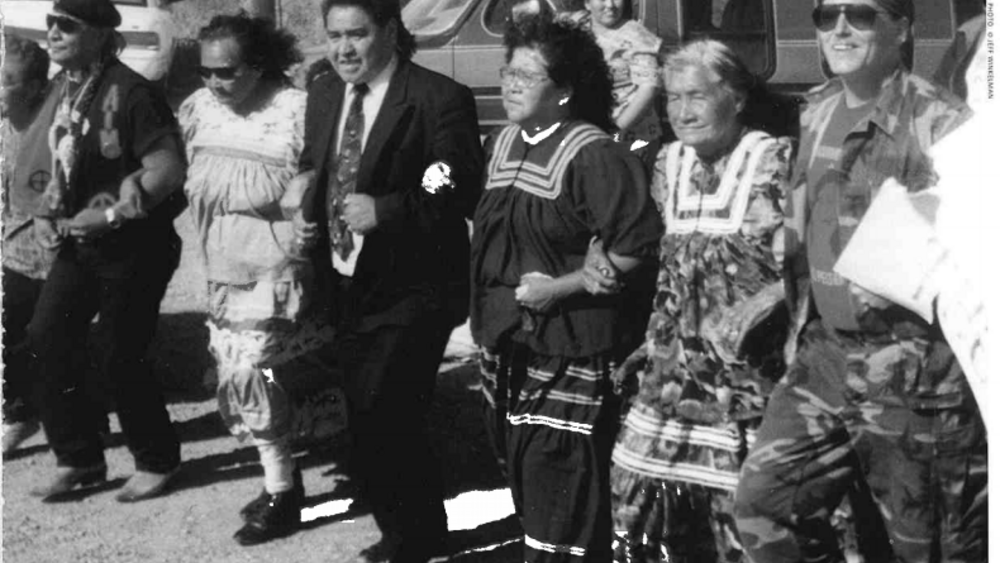
Navajo Treatment Center for Children and Their Family
Responding to high rates of child abuse and neglect, the Navajo Child Special Advocacy Project was launched in 1990 to provide Western and Navajo therapy to victims of sexual abuse between the ages of 3 and 17. With five offices on the Reservation, the project administers Navajo diagnosis,…
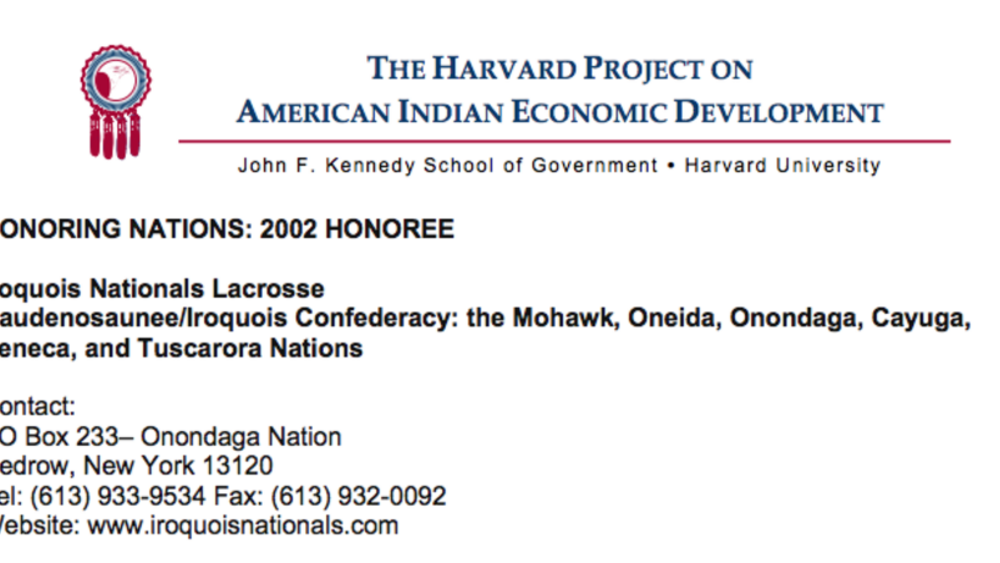
Iroquois Nationals Lacrosse
Officially sanctioned by the Grand Council of Chiefs to represent the Haudenosaunee (or Iroquois) in international lacrosse competition, the Iroquois Nationals Lacrosse Team represents a sovereign nation in world competition. The team — which has won numerous medals and awards — has successfully…
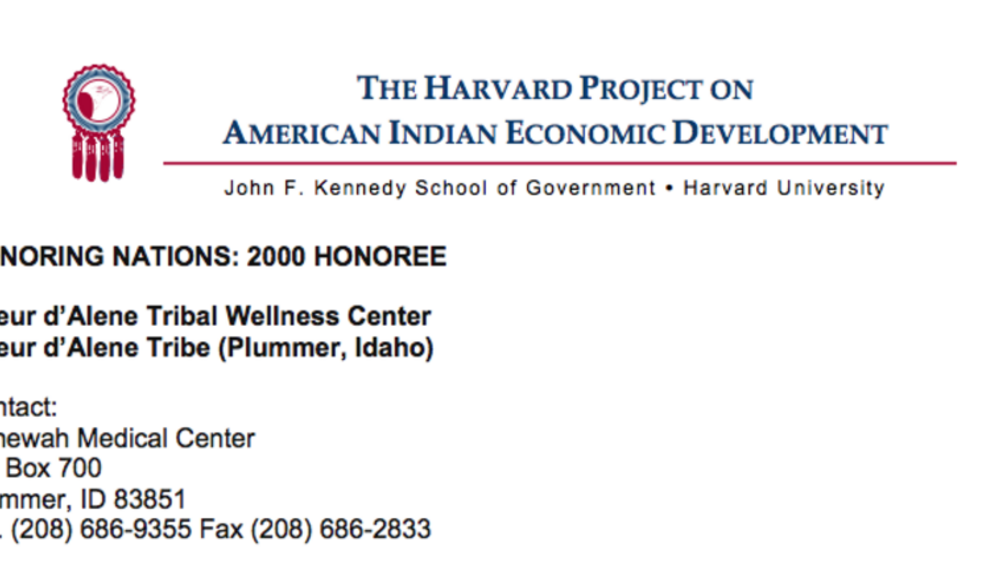
Coeur d'Alene Tribal Wellness Center
Created in 1998, the Wellness Center aims to promote healthy lifestyles by offering programs in fitness, aquatics, rehabilitation, childcare, and community health to 3,000 Indian and non-Indian clients. By employing the medicine wheel, or whole-life, approach to health and by focusing on…
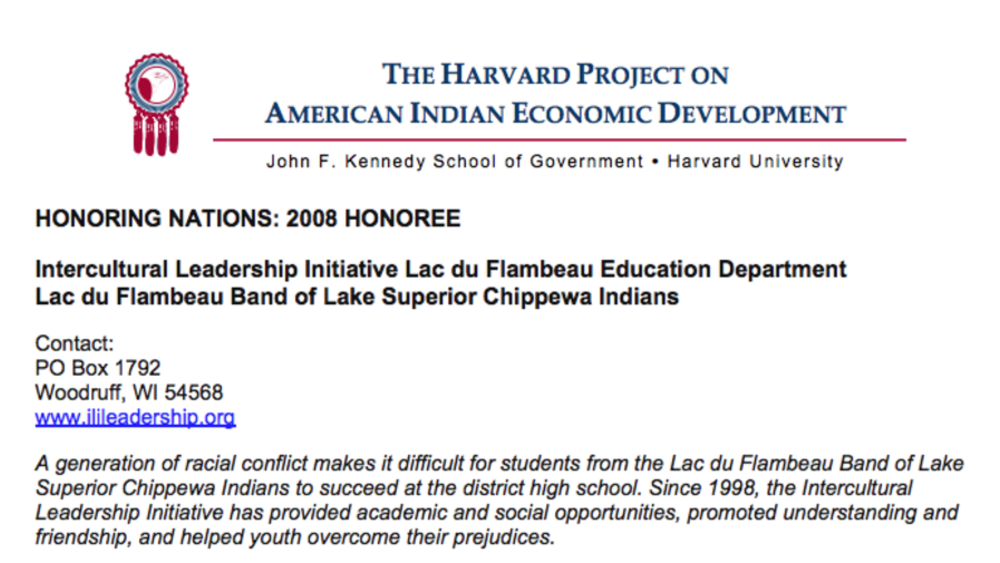
Lac du Flambeau's Intercultural Leadership Initiative
A generation of racial conflict makes it difficult for students from the Lac du Flambeau Band of Lake Superior Chippewa Indians to succeed at the district high school. Since 1998, the Intercultural Leadership Initiative has provided academic and social opportunities, promoted understanding and…
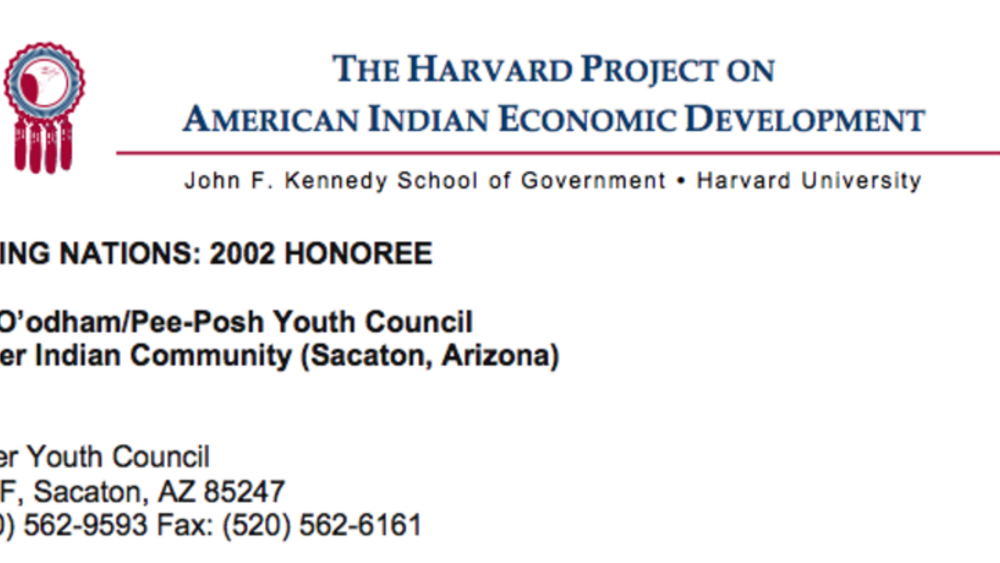
Akimel O'odham/Pee-Posh Youth Council
Recognizing that their youth possess critical insight on a full range of governing issues, tribal leaders chartered the Akimel O’odham/Pee-Posh Youth Council in 1988 to give youth a formal voice within the tribal government. The Council is comprised of 20 youth between the ages of 14-21, who are…
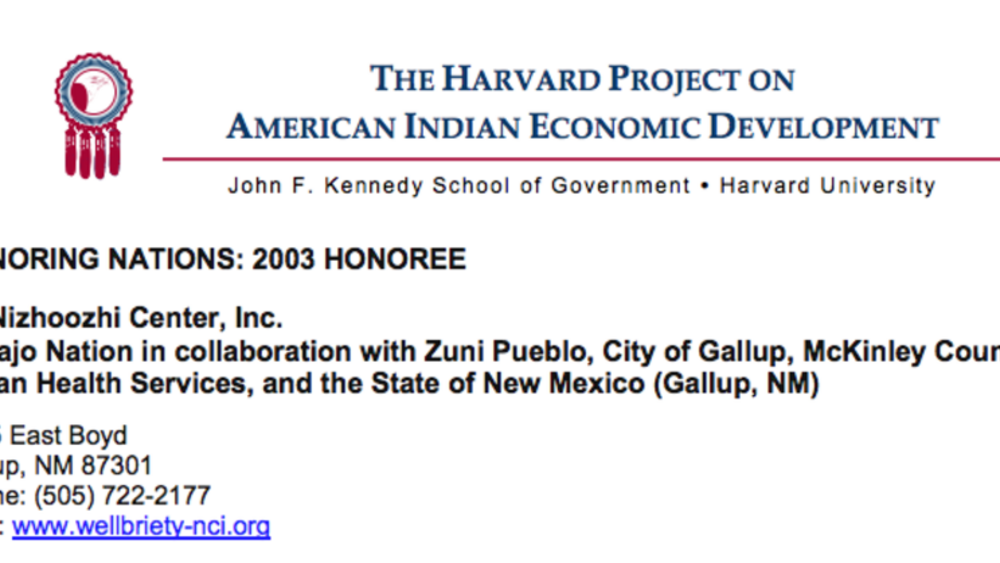
Navajo Nation's Na'Nizhoozhi Center, Inc.
Responding to the distressing rates of accidents, deaths, and other alcohol-related problems in Gallup, NM, the Navajo Nation partnered with Zuni Pueblo, the City of Gallup, McKinley County, and the State of New Mexico to establish the Na’Nizhoozhi Center in 1992. The Center has been an effective…
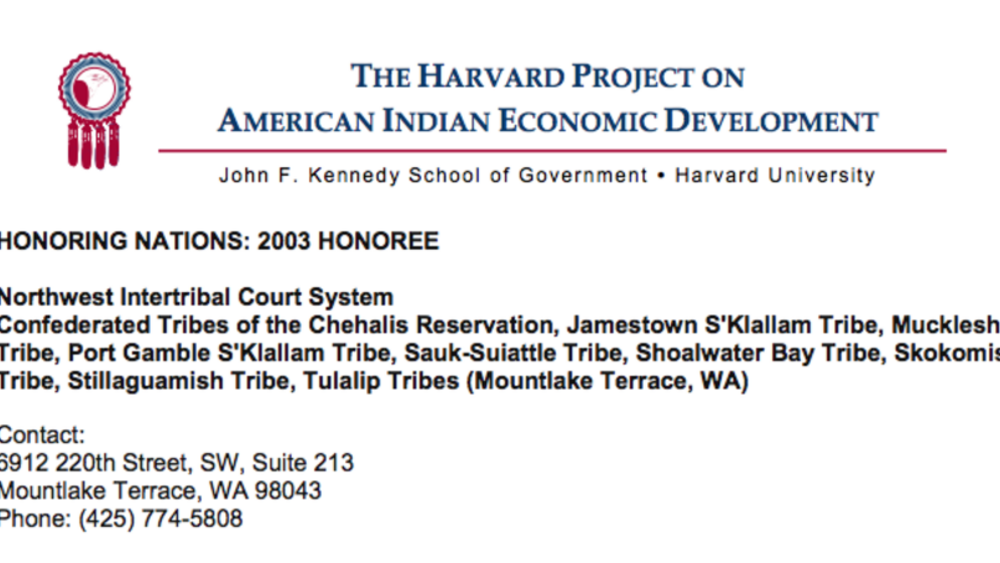
Northwest Intertribal Court System
The Northwest Intertribal Court System (NICS) assists tribes in developing tribal courts that provide fair, equitable, and uniform justice for all who fall within their jurisdiction. Owned by a consortium of tribes in Washington State, NICS recognizes the sovereignty, individual character, and…
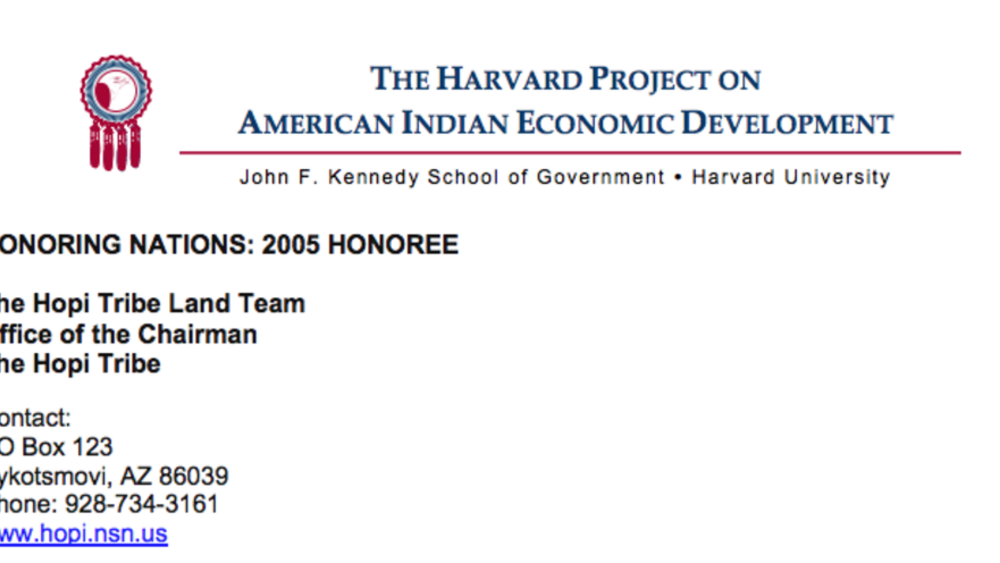
The Hopi Land Team
Reclaiming traditional lands has been a primary concern of the Hopi Tribe for the last century. In 1996, significant land purchases became possible under the terms of a settlement with the United States. The tribal government was faced with the problem of developing a plan for reacquiring lands,…
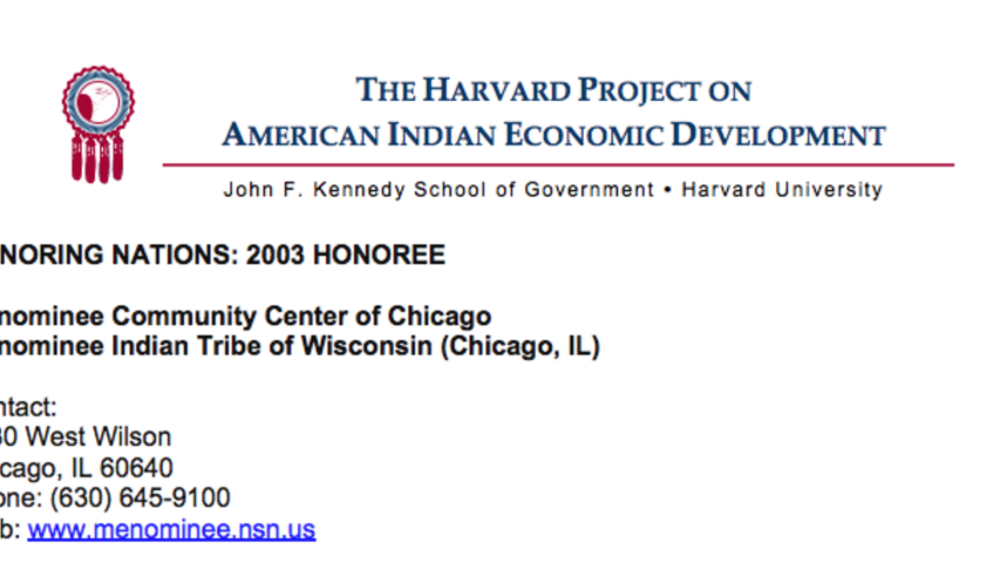
Menominee Community Center of Chicago
A unique partnership between an urban Indian center and a tribal government, the tribally funded Community Center serves nearly 500 Menominee tribal citizens living in the greater Chicago area. The Center and the tribal government work together to ensure that all of its citizens are actively…
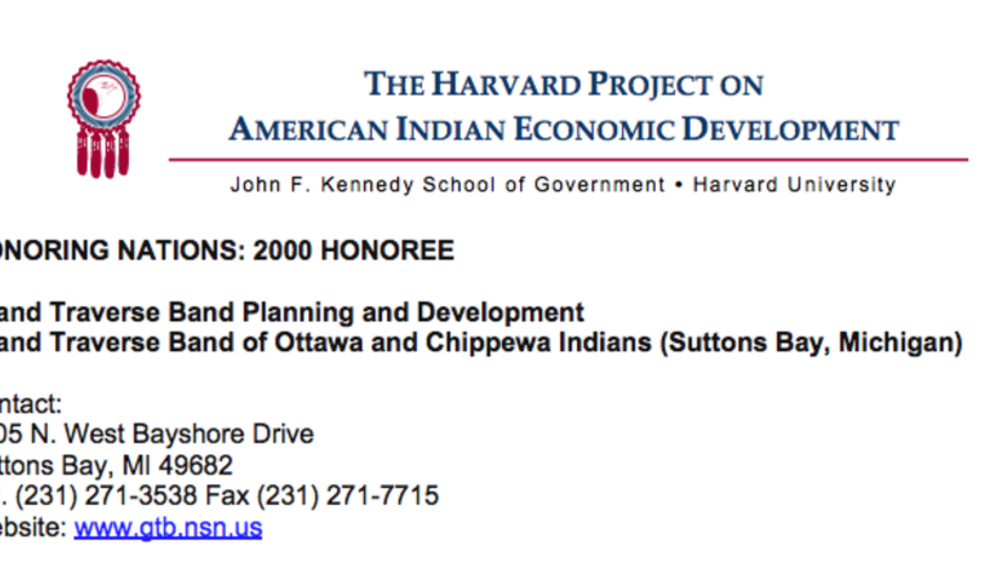
Grand Traverse Band Planning and Development
Faced with a growing land base and an increasing number of visitors to the reservation, the Grand Traverse Band Tribal Council established the Planning and Development Department in 1997 to build capacity within the community to accommodate new needs. The Department addressed its challenge by…
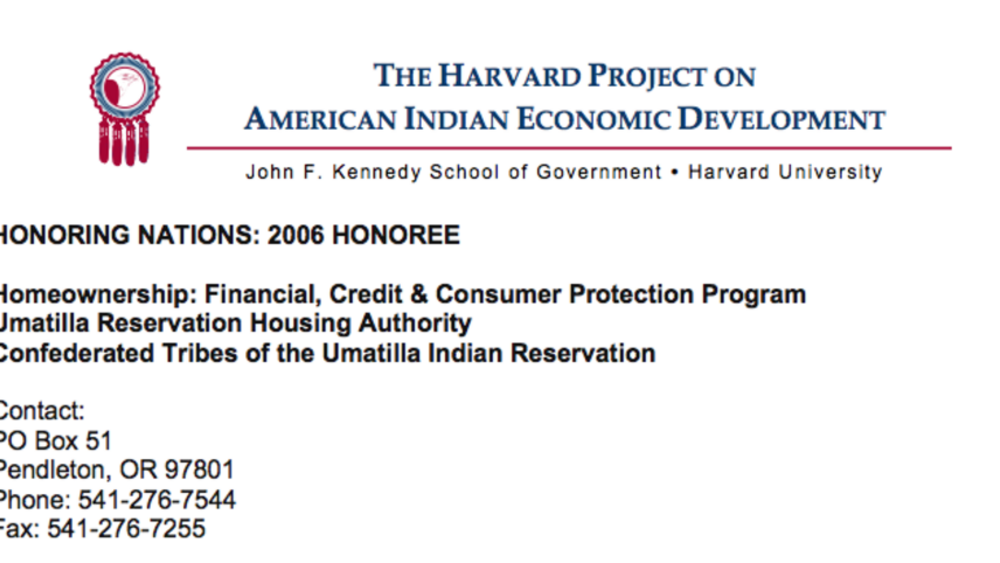
Umatilla Homeownership: Financial, Credit and Consumer Protection Program
Recognizing the necessary links between promoting a strong economy, maintaining positive cultural connections, and the ability to own a home, the Umatilla Housing Authority promotes the "Wapayatat" Homeownership: Financial, Credit and Consumer Protection Program. The seven-week course provides…
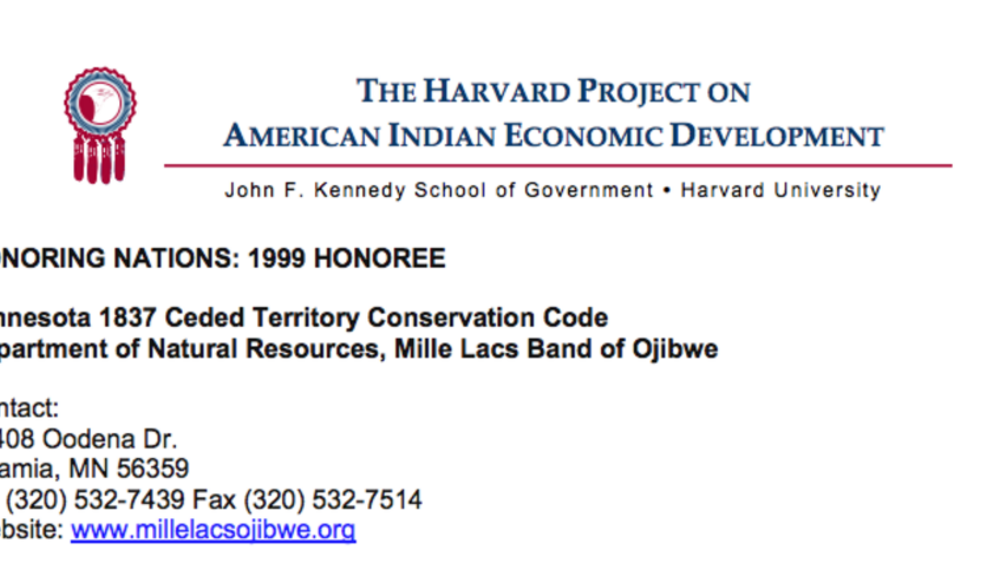
Minnesota 1837 Ceded Territory Conservation Code (Mille Lacs)
In 1997, the Band successfully developed a conservation code that enables the Tribe to exercise its treaty rights to hunt, fish, and gather. The Code sets out detailed hunting and fishing regulations for Band members that protect the natural resources while allowing for the continuation of…
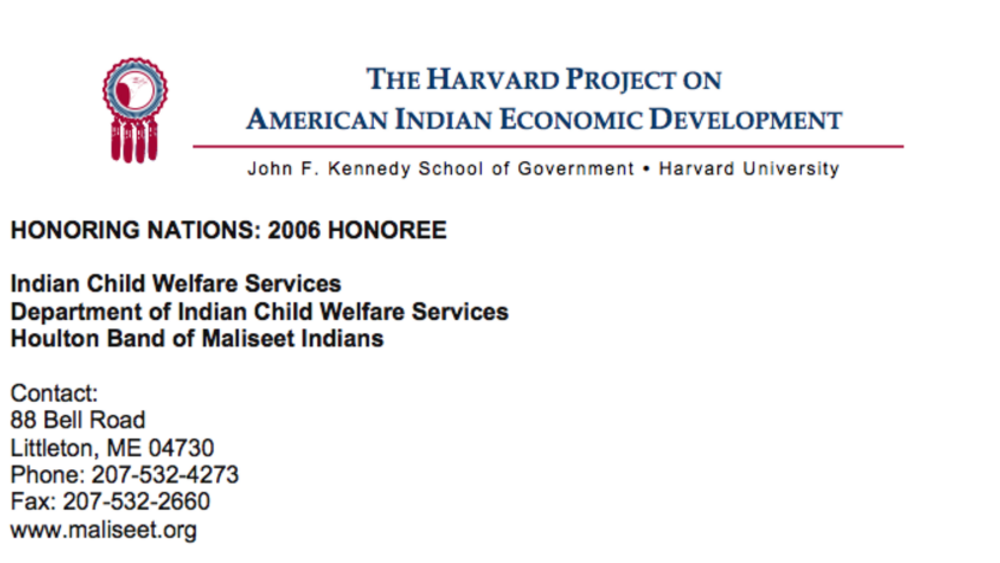
Houlton Band Indian Child Welfare Services
Seeking to establish collaborative working relationships with the state while firmly asserting sovereignty over Maliseet children, a Child Welfare Department was formed by the Houlton Band. The department created a Child Protective Team made up of professionals and volunteers to review and seek…
Pagination
- First page
- …
- 4
- 5
- 6
- …
- Last page
